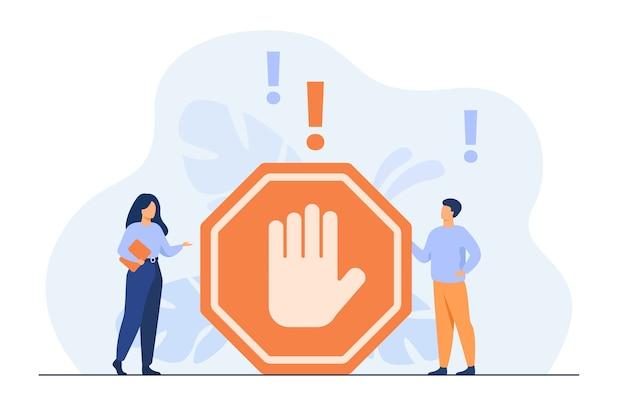There are various means of developing compassion, I think empathy is an essential factor: the ability to appreciate others’ suffering.
– Dalai Lama

Summary:
Compassion and empathy are familiar terms we hear around us more often these days. Do you feel compassionate or empathize with a beggar on the roadside, a mourning friend, or an older adult trying hard to cross a busy road? On the surface, both these words might appear the same; however, if we go deeper, they are different. Compassion and empathy are two emotions that work in conjunction with one another. The most common reason that these two words are used interchangeably is that they both have to do with sympathy and compassion, but they are different.
This blog is equipped with research and data points, that will help you in finding answers to the below questions and having a better understanding of these words & importance:
- What does compassion mean – definition?
- What does empathy mean – definition?
- Compassion v/s empathy – difference and example?
- Why should you be compassionate and empathetic?
- Signs of lack of empathy and compassion
- How can you empathize more and be compassionate?
What does compassion mean – definition?

The word ‘compati’ in Latin is the origin of the word ‘compassion.’ It means ‘suffering with.’ If someone can feel for another person’s suffering and want to help them, it is compassion. It has been described as “a feeling of deep caring for another person, based on the belief that they have a similar worthiness to oneself.”
A few examples of compassion are – a mother comforting her sick child and a friend listening to your problems and offering advice is another example of compassion. Hence, the act of being compassionate can be described as:
- Being patient with people who are having trouble or pain in their lives
- Always tending to another person’s needs, even when they are inconvenient or even harmful to your interests
- Being kind and considerate to others in your everyday life. Example of being compassionate
One might say that compassion has a deeper meaning than just being able to feel for another person by imagining how it feels like for them – this means going beyond what someone else would generally say about themselves if given a chance. It involves understanding why someone else believes as they do, even though you may disagree with them or find their behavior unacceptable at times. This allows you to choose your path based on your values rather than blindly follow theirs because one way works better than others when taken mass anyway!
Did you know that compassion is also essential to many religions and philosophies?
- In Buddhism, compassion is one of the critical principles of the Noble Eightfold Path. According to the Buddha, the Noble Eightfold Path consists of:
- Right View
- Right Resolve
- Right Speech
- Right Action
- Right Livelihood
- Right Effort
- Right Mindfulness
- Right Concentration
- The philosophy of Stoicism also emphasizes compassion as a virtue that needs to be cultivated for human beings to live good life.
- In Christianity, compassion is one of the three theological virtues. The other two are faith and hope.
- In Sikhism, compassion is one of the five primary virtues:
- Sat (Truth)
- Daya (Compassion)
- Santokh (Contentment)
- Nimrata (Humility)
- Pyaar (Love)
What does empathy mean – definition?

Empathy is someone’s ability to understand and share the feelings of another. It’s also called vicarious learning, as it describes how we can learn from others’ experiences without having to go through them ourselves. Empathy is the main component in many professional fields, including healthcare and education.
Empathy is defined by several factors:
- Understanding the other person’s situation or environment (physiological)
- Imagining yourself in their shoes (psychological)
- Experiencing their emotions (emotional)
For example, your colleague is a bit late in reaching the office and begins ranting about the bad traffic, which was the cause for their delay. You might have been in such a situation yourself or are reminded of an experience of someone else in a similar situation. Then you will be able to understand the emotions your ranting colleague might have gone through, imagine yourself in the same situation, and understand the reason behind their rant and current behavior.
Empathy is a vast concept. Psychologists Daniel Goleman and Paul Ekman have defined three elements of empathy:
1. Cognitive: It is like stepping into someone else’s shoes. You can understand how and what the other person might be feeling and thinking in a particular situation.
2. Emotional: It is when based on your understanding of other person’s emotions and feelings, you can connect with them better.
3. Compassionate: You feel obliged to act based on the connection you feel with another person due to their feelings and emotions.
Empathy is a crucial part of our daily lives, and it can help us build healthier relationships with others. Some of the ways you can increase your empathy are as below:
- Acknowledge the other person’s feelings. If you have been in the same situation, you could say, “I can relate to what you are sharing.” If you have not experienced the same situation, then you can say, “I would be lying if I said that I can relate as I have never experienced it; however, I am open to listening and understanding your situation.”
- Try to understand what they’re experiencing, and don’t dismiss their feelings as unimportant or silly. Be open to listening and accepting their truth v/s judging and assuming based on your personal experience. For example, if someone shares feeling extremely low due to the loss of their pet, do not judge them just because you never had a pet and do not have an understanding of the connection they could have with their pet.
- Put yourself in their shoes (literally). This can help you better understand how they feel. For example, if an elderly woman is telling you about her health problems and how she worries about not being able-bodied enough to take care of herself anymore, imagine what it would be like if this happened to you.
- Listening and not interrupting. Try not to make assumptions about what they’re feeling or why they feel that way. Ask questions if you need clarification. For example, if someone is ranting about low appraisal and feedback, they would have received from their leader, listen patiently and then counter question the data based on which they got certain feedback and ratings which are contributing to their behavior.
- Don’t judge them. If you’re trying to be empathetic, it’s important not to immediately pass judgment on the other person or what they’re saying. This can help you avoid making assumptions about them or their situation. For example, if someone is speaking in a language you don’t understand, don’t assume that they are gossiping about you; they might simply not be aware of your limitation and probably have some language barrier themselves.
Compassion v/s empathy – difference and example?

Compassion
Empathy
It is a feeling of sorrow for another’s misfortune and taking action to help them.
It is the ability to share the feelings of others.
Being compassionate doesn’t mean you’re going around feeling sorry for everyone who crosses your path; it means having an understanding heart towards others’ struggles.
Empathy can also be difficult sometimes because we’re all different people with different experiences, so maybe one person has had a lot of hardship in their life while another doesn’t have any at all!
For example, you were watching an episode of your favorite show, and one of your favorite characters got fired. You would feel compassion for that person because they were down on their luck and lost their job, which was likely causing them a lot of stress. On the other hand, if you saw someone who was stuck in traffic during rush hour and had no idea when they would be able to get home or even if they could make it at all—you might empathize with their situation instead!
For example, a mother might have lost her child through a miscarriage, but another mom might have just been diagnosed with breast cancer—they both went through similar situations but experienced them differently because they each were dealing with their own unique set of circumstances before those losses occurred (and many other things beyond). As such, there are times when one person may feel more empathy than another due to these differences between them (even if both parties want what’s best for themselves).
Compassion is a positive trait that can help you be happier and more fulfilled. Empathy is the ability to understand and share the feelings of another person, which is why it’s so important for us all to cultivate empathy in our lives.
Another example is that you see a person crying and ask them what happened. They may say something like “My mother had a stroke today” or “My friend lost her job,” etc. This means that your compassion level has been triggered by their words. But if you asked why they are sad about this situation, it would not make sense to them at all because it will be too complicated for them to explain in words how much pain they have been feeling since then due to this incident (e.g., How could I possibly explain why my mother can’t walk anymore? What does losing your job mean?).
Why should you be compassionate and empathetic?

Compassion and Empathy are both good for your health. Compassion helps us relate to others by putting ourselves in their shoes; it makes us feel connected to them and aware of their needs. Empathy helps us understand how another person feels, but it doesn’t always lead directly into action on our part (such as giving money or volunteering at shelters). On the other hand, when we’re compassionate toward others—and especially ourselves—we start thinking about how best to focus only on ourselves rather than help them solve their problems.
This article was published in the National Library Of Medicine, which proves that self-compassion is equally important. Often we are very critical of our failures which increases SAD (social anxiety disorder). We have to be kind to ourselves and deal with failures in the right manner, which will help reduce SAD.
In a recent study conducted by the University of Michigan School of Public Health, researchers found that compassion is associated with better mental health outcomes in older adults. Also, people who feel connected to others tend to have fewer mental health problems than those who don’t feel this way—and this may be because being compassionate makes us happy!
The benefits go far beyond just feeling good: research has shown that being empathetic can also help prevent depression among seniors. A study showed that older adults who demonstrated high levels of compassion were less likely than other participants (who did not report high levels) to experience major depressive episodes over time (as measured by self-assessment).
The study also found that older adults who felt connected to others were less likely than those who did not feel this way to experience major depressive episodes over time (as measured by self-assessment). These findings as per the researchers suggest that compassion for others and connection are both important for preventing depression among older adults.
In the context of the workplace, the 2022 survey results conducted on more than three thousand US employees showed that amidst covid, Empathy has declined in the organizations, contributing to one of the many reasons for great resignation. Many organizations are now scheduling training on Empathy as an important skill for leadership development. In these pieces of training, employees learn the methods of identifying the emotions of others, i.e., increasing their emotional intelligence and apt ways to respond. Then they practice it during the workshop. As a result, talent retention is higher in A HBR (Harvard Business Review) article mentions about top 20 companies in the US, UK, and India in 2016, which were ranked in ‘The global Empathy Index. One hundred and seventy companies were ranked from most to least empathetic, measurement criteria being:
1. Internal culture
2. CEO performance
3. Ethics
4. Social media presence
Facebook was at the top of this list. They have an empathy lab that helps them design the page for users who have some form of disability, the user who is in a country where screens might be smaller, or the internet connection might be slower. This is directly contributing to the vision of the company, which is to connect everyone in the world.
Signs of lack of empathy and compassion

There could be people who come across as lacking empathy and compassion. There are various reasons for these people to be low in empathy, like – antisocial personality disorder, narcissistic personality disorder, autism, Machiavellianism, alexithymia, borderline personality disorder, etc. Also, the level of empathy and compassion may vary from person to person. A lot depends on their socio-economic status and background, the way empathy and compassion are spoken about, or practices in their environment.
Some of the signs by which we can identify such people can be:
- They are always critical and rarely recognize your efforts.
- They find it difficult to maintain relationships.
- They do not accept the harm their behavior causes to other people and are averse to taking critical feedback.
- They often call bucket other people as ‘too sensitive.
- They mostly do not care about the feelings and emotions you might be going through.
How can you empathize more and be compassionate?

To be more compassionate and empathetic, firstly, one needs to understand the concept and speak about it more often. It helps cultivate a culture of empathy at home and workplace. With the number of organizations moving to train on empathy and creating a more engaged workforce, the number of ways to build over this skill is shared widely:
- Do regular check-ins: Do you remember that leader who always addresses you by your name? You feel amazed at how they remember your name out of so many colleagues or thousands of employees. Such a leader is not only good at building strong connections but also at staying in touch with their employees. They drop by workstations more often, ask about the well-being of their employees and stay connected. Over a period, these regular check-ins become a part of their habit and overall team culture, creating a trustworthy and friendly environment.
- Speak less and listen more: When we speak, we talk about things we already know, but when we listen, we learn new perspectives and points. The speaker also feels heard and valued. This is another way of becoming more empathetic and compassionate. The more we listen, the more the other person becomes comfortable in sharing.
- Invest in the growth of your employees: Most organizations offer a training program that fits the need of most of the employees. However, every person is unique, and the learning requirement and the curve are unique; hence the development and growth programs should be employee specific. The leaders and organizations who genuinely invest in the growth of their employees ensure customized programs are offered.
- Be approachable: Leaders are always running to achieve different priorities; hence when they give a sense of being available when their employees need them, it helps build trust and creates their persona as a leader who might be open to listening and probably empathetic towards employee needs.
- Avoid judging: Not being judged for who we are and what we do – isn’t this something all of us want? The first thumb rule of being compassionate and empathetic is to listen to what other people must share without any preconceived notions and judgment. Listening will help them step into their shoes, understand the emotions and feelings they are going through, and build connections between the support the listener can lend or not lend. If the person feels judged, they might not even connect and forget about sharing or seeking support.
- Track overworking and burnout: As a leader, you will be aware of the engagement and tasks allocated to your employees. Additionally, you would also have a fair idea of their level of productivity, overworking, and burnout status. To be more empathetic and compassionate, you need to call out employees who are overworking or showing signs of burnout. You might want to figure out the reason they are overworking and fix the root cause. Alternatively, give them some time off from work to just relax and rejuvenate. They will be more appreciative of you and work with more dedication and higher productivity.
- Converse about empathy and compassion: The words empathy and compassion are less spoken about. Especially, there is gender stereotyping that women are more empathetic and compassionate by nature as they give birth to children. On the contrary, empathy and compassion are not the innate quality we are born with. These can be termed as skills that can be learned and imbibed. These skills are helpful on personal and professional fronts to build stronger and more meaningful relationships.
Conclusion
Empathy is something one is not born with, rather, it is a quality that can be developed and strengthened, but compassion is a state of being. You can’t force yourself to be compassionate; it’s something that comes from within. A common misconception about compassion and empathy is that they are synonymous with “niceness.” This is not true! Being empathetic doesn’t mean you’re always going to feel sorry for someone else’s pain (although it can certainly encourage this). Empathy isn’t pitied; it’s concern over another person’s suffering or loss. Compassion is a positive and active approach to helping people. Empathy is a passive and receptive way of dealing with others. Compassion makes you more likely to take responsibility for your actions, whereas empathy makes you feel guilty about them. The key to being compassionate is taking the first step to becoming more empathetic!


